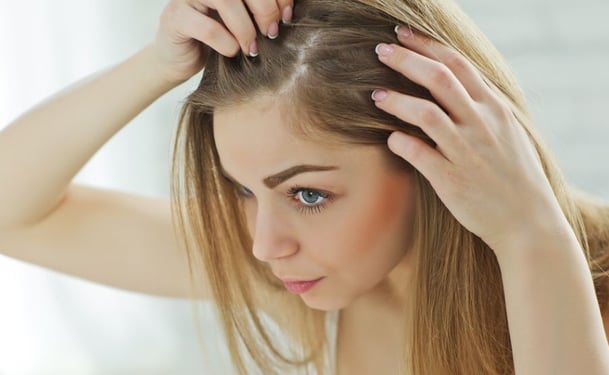Lice are tiny insects with six legs that are found on the scalp, pubic region, clothing and other areas. They may be a nuisance for those who have lice and are commonly spread through close personal contact with others or by sharing personal items such as combs and hats.
Itching
Itching is the most common symptom associated with lice. Lice bite the individual's head to feed on the blood and the saliva from lice causes allergic reaction and itching. If this is the first time that the person is infected with lice, allergic reaction or itching may not be present for several months, but in repeat lice infestations, itching may begin after only a few days as the immune system responds more quickly. The sensitivity to lice bites among people with lice infestation may vary. Some patients are not bothered by lice bites or build up a tolerance to it, while others are very sensitive to the bites and experience very uncomfortable itching.
Other Symptoms
Other symptoms of lice bites may also be present, but this may depend on the type of lice infestation that the patient has. Head lice is found on the scalp, body lice on the clothing (they go on the body to feed) and pubic lice (crabs) around the pubic region, although pubic lice may also be found in the armpits, facial hair, chest hair, eyebrows, etc.
Head Lice Symptoms
Scratching the scalp during head lice infestation may lead to broken skin or sores. The sores may become infected and the lymph nodes may swell in response.
Pubic Lice Symptoms
Those with body lice may notice flat, bruise-like marks on their skin, usually on the torso, thighs and/or upper arms. These bruises may last even after lice are gone. If pubic lice affect the eye lashes, eye irritation and crusting may be present.
Body Lice Symptoms
Sores from body lice may develop in the armpits, along the waist or on the torso where clothing seams press against the skin. Remember, body lice live in clothing seams and go on the body only to feed. If you think you have lice, speak with a healthcare professional. Dandruff and scabies may cause symptoms similar to those present during lice infestation, so consider this possibility as well.



